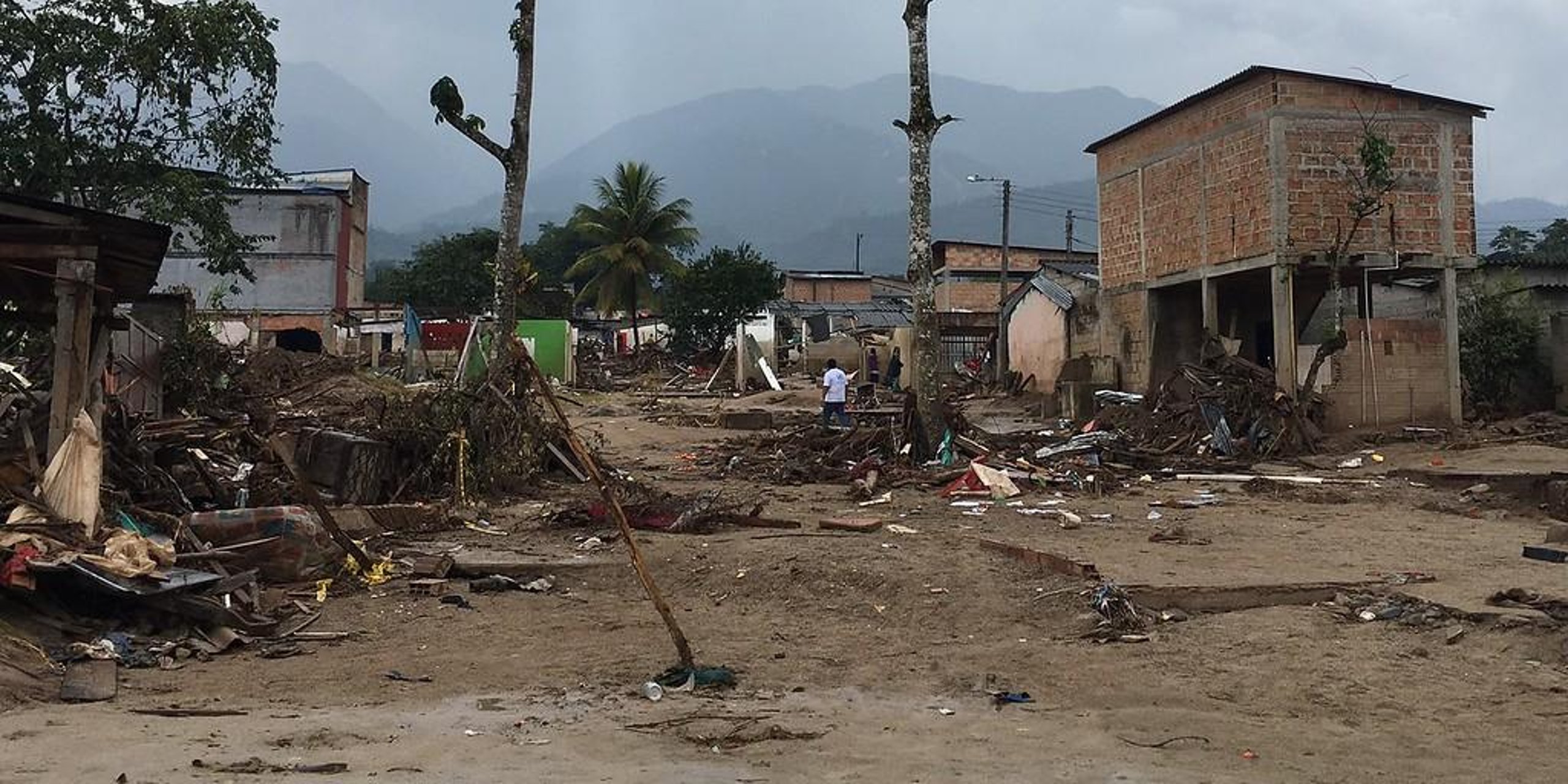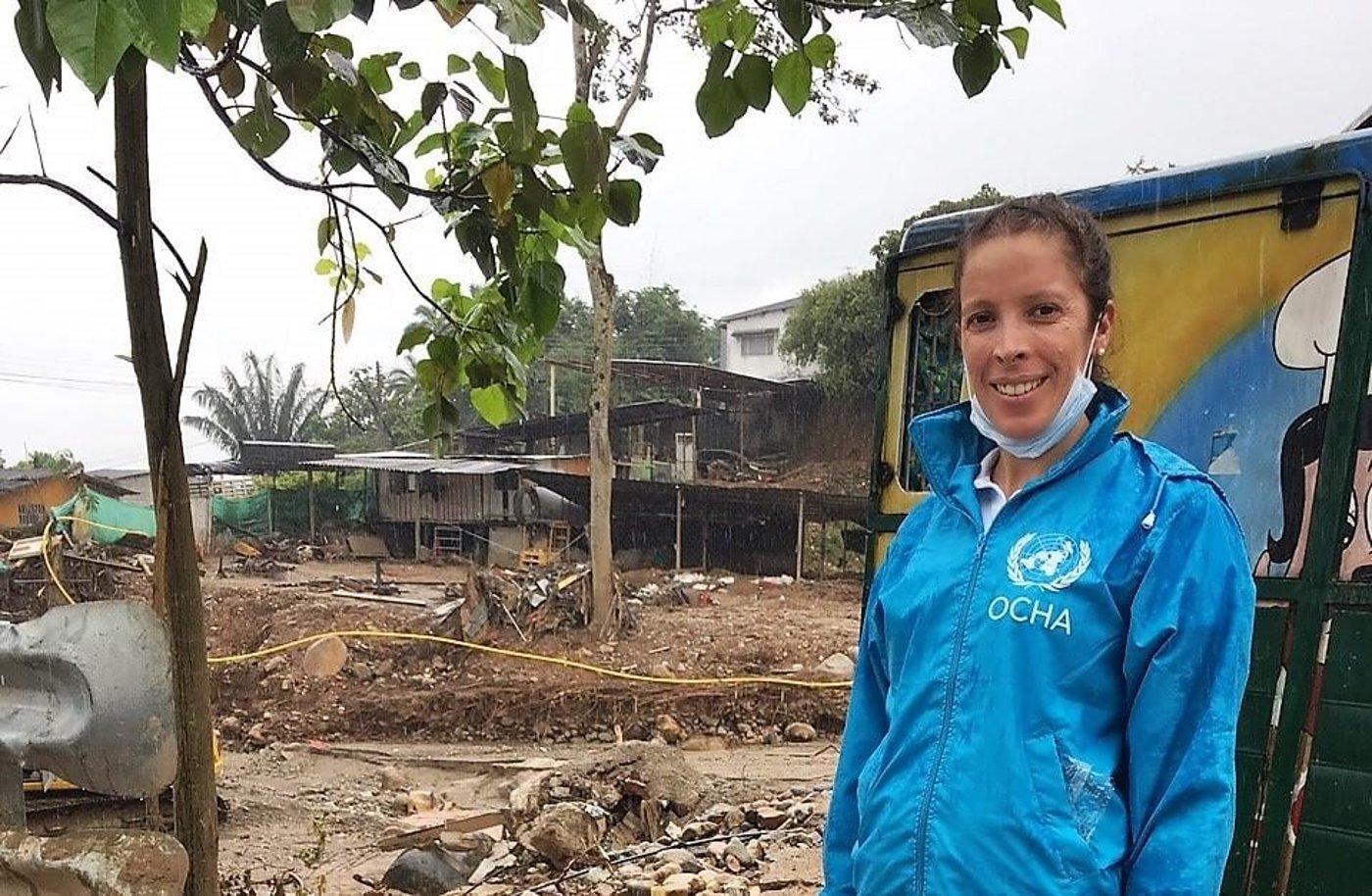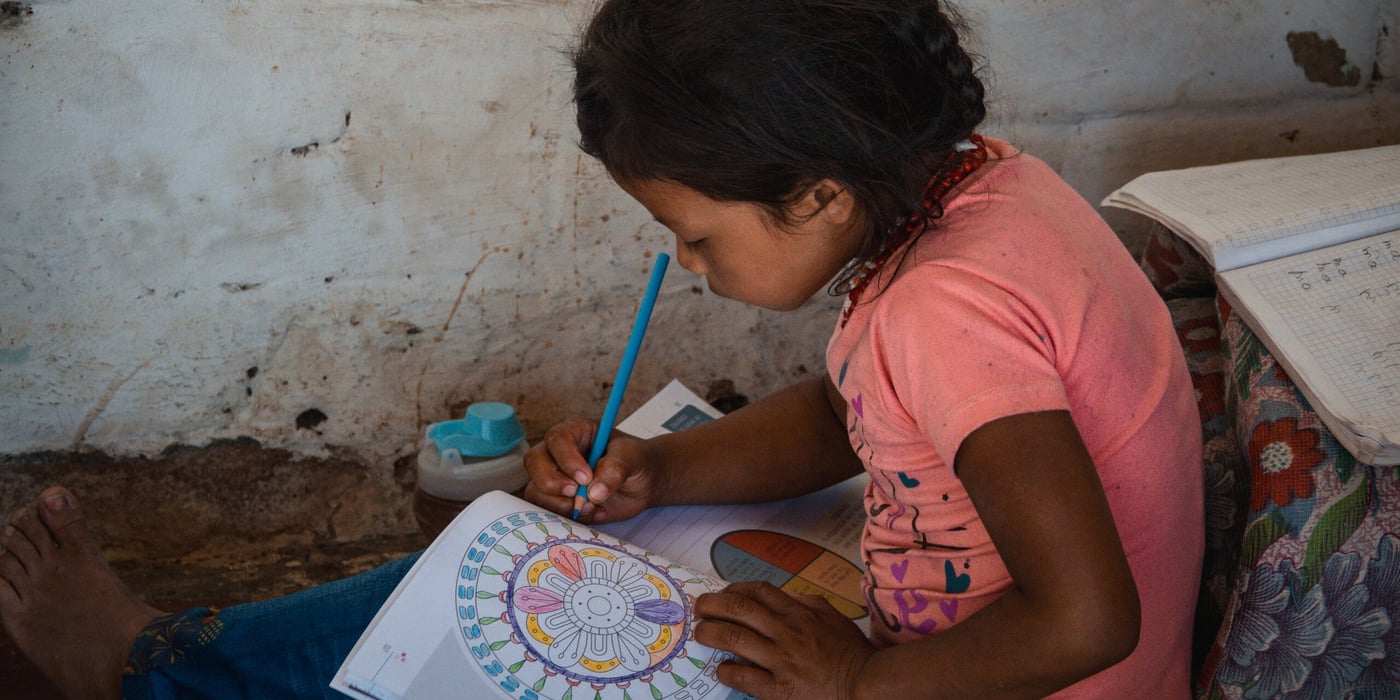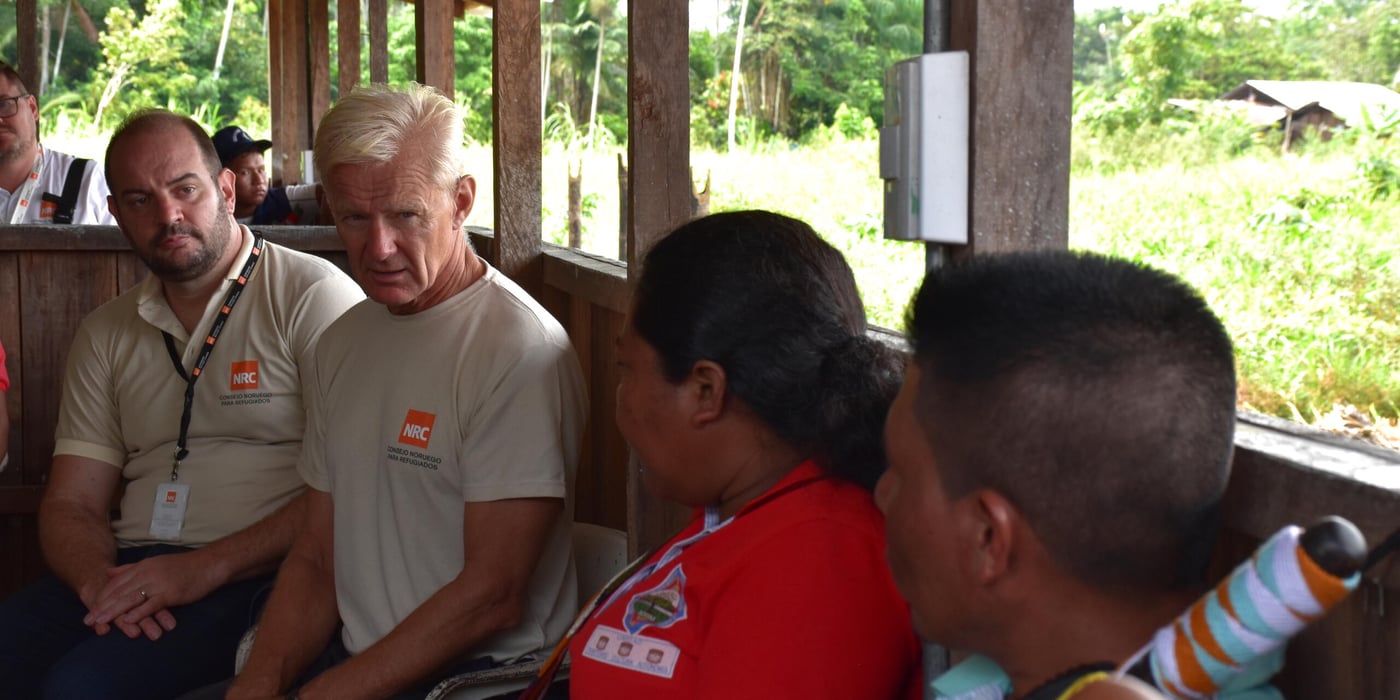
The landslides that hit the southern region of Putumayo, Colombia on 1 April have destroyed several towns in the province and left the capital, Mocoa, in a critical situation. More than 12,000 people are directly affected and the number is expected to rise as registration of survivors continue.
Gender Capacity adviser Devanna de la Puente is working as an inter-agency capacity, hosted by UN OCHA in Colombia, to support the inclusion of gender into the humanitarian response. She has been working closely with the different sectors, providing guidance, technical support, and trainings on gender equality, especially with the police and armed forces, who are managing the shelters.

Over 40 percent of the population in Mocoa are internally displaced people, many are indigenous and have been exposed to decades of conflict.
"Women, children, and the indigenous communities require special attention throughout, as they are already vulnerable. Many shelters are overcrowded, and informal settlements have limited or no basic services. This can pose a risk for multiple forms of gender based violence, abuse and exploitation", de la Puente says.
Recent assessments and monitoring of the situation in shelters and informal settlements have highlighted the critical condition of women and girls in the affected areas. Gender tools developed by GenCap were used in the response, with support from UN Women, UNDP, UNHCR, NRC, and others, in order to gather greater gender related information and analysis.
"The response still requires attention, as the need for humanitarian aid is still present in Putumayo. Especially considering the upcoming raining season can lead to more floods and landslides, which can destroy what is already rebuilt", de la Puente says.



